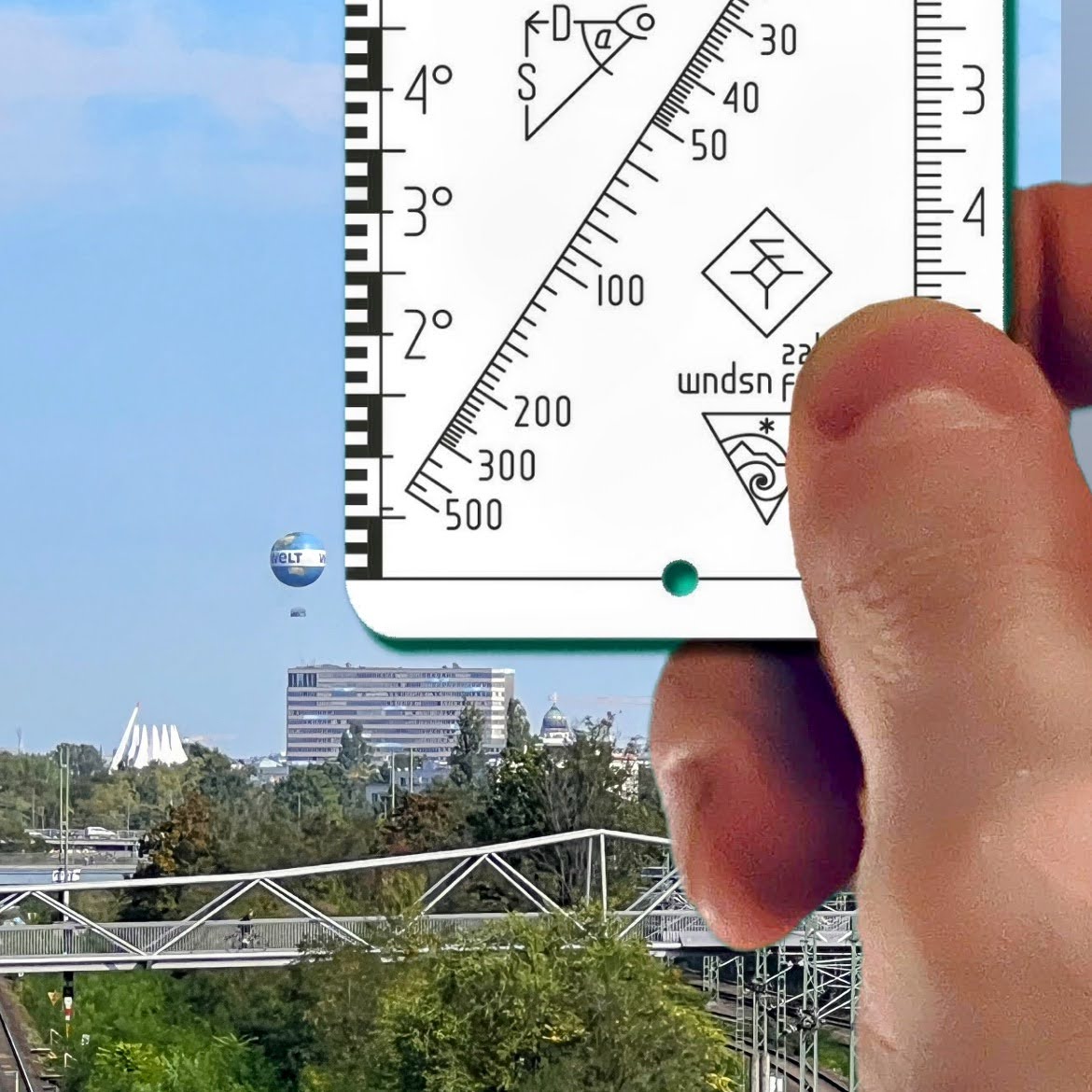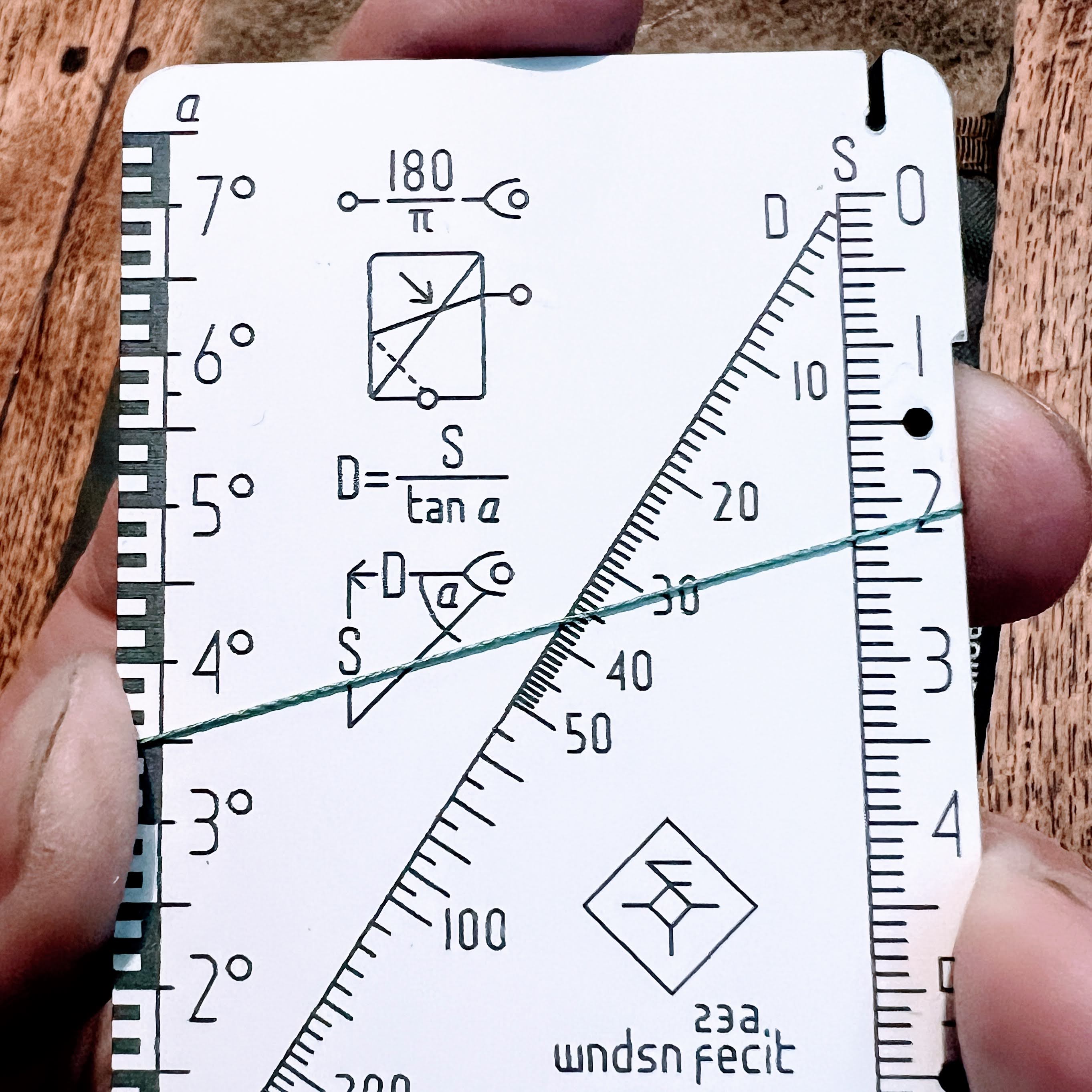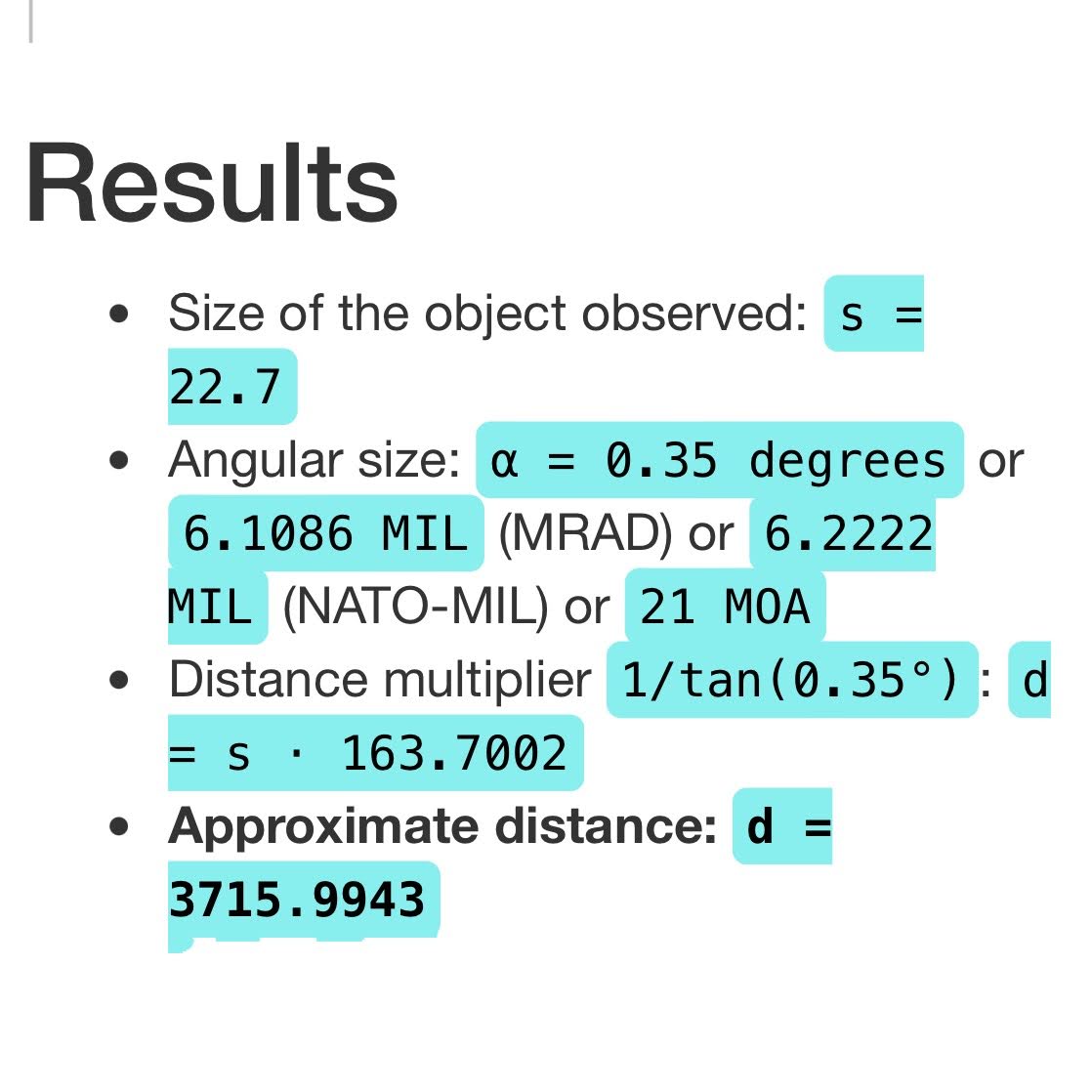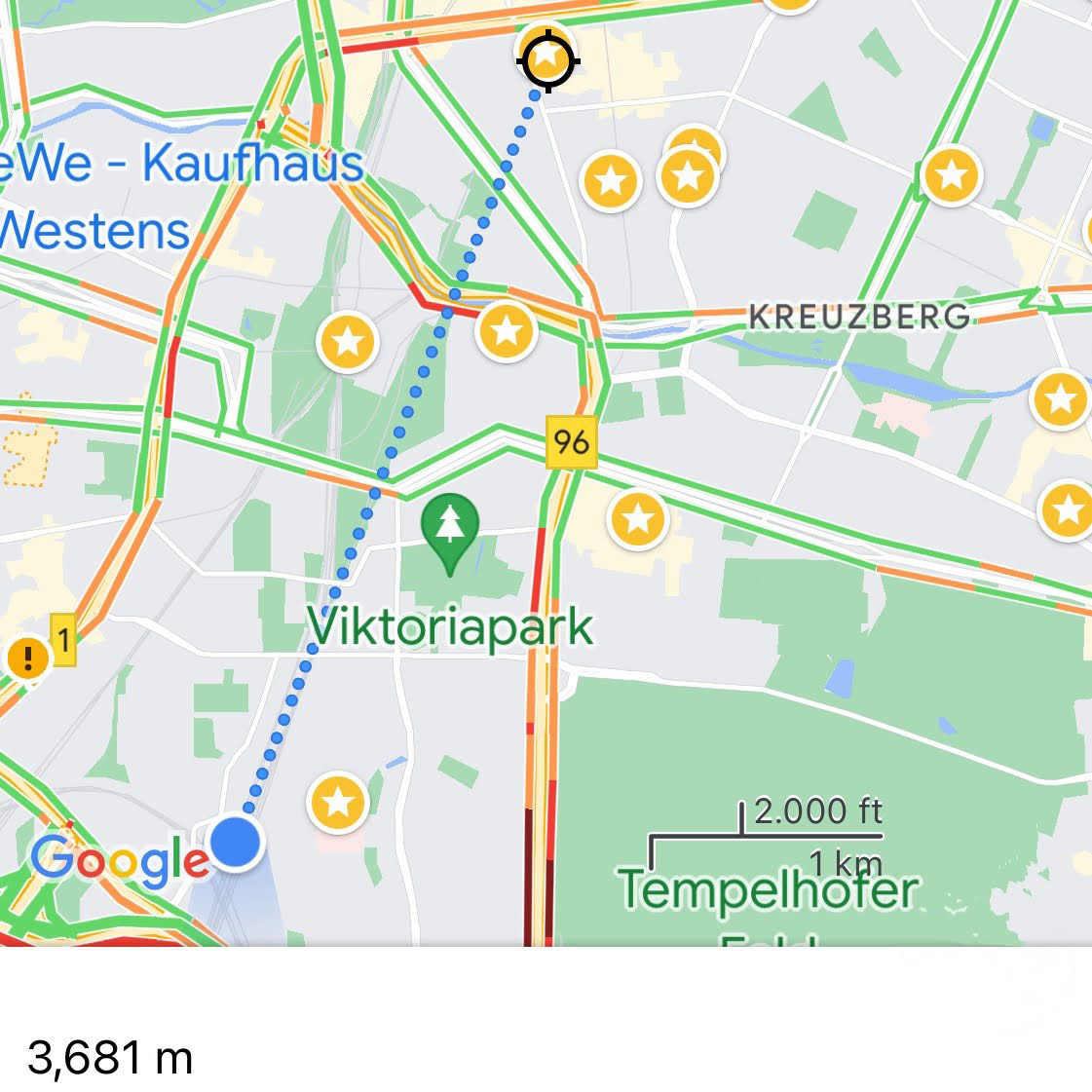Product Spotlight: How Does a Telemeter Work?
2024-11-03
On a fundamental level, the Telemeter calculates the distance to an object of known dimension(s).
Example task: Determine distance to known object balloon
We know the absolute size of the balloon, 22.7 m in diameter.
From here, it takes two steps --
- measure the angular size of the object and then
- calculate the resulting distance.
Step 2: Now using the Telemeter to calculate with the two values returns a resulting distance of 37.
For the angular size, we input 3.5 instead of 0.35° for higher precision and remember to multiply the result by 10.
For the absolute size, we input app. 2.27 since 22.7 doesn’t fit the scale. We remember to multiply the result by 10.
The final result is 37 x 10 x 10 = 3,700 for the distance in meters.
The control, processing the values with the high precision Tycho range calculator, shows a result of approximately 3,715 m.
Note: Had we known the balloon size in feet, the final result would be in feet as well, without any intermittent conversions needed.
These are the basics. Beyond that, a whole science awaits. The comprehensive Telemeter manual stands at 538 pages in its 5th edition.
See also:



